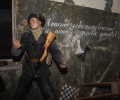Submarine Museum D-2 Narodovolets
50 photo with description11.07.2019 09:23
11.07.2019 09:23
Andrey Panevin

There is a unique museum on Vasilievsky Island in the territory of LenExpo - the submarine-museum D-2 “Narodovolets.” The submarine was directly involved in the fighting in the Great Patriotic War. The first sunken ship was the Yakobus Fritzen, torpedoed October 14, 1942. Five days later, October 19, 1942, the boat torpedoed and severely damaged the Deutschland sea ferry. There were other declared victories, but not confirmed by the enemy.
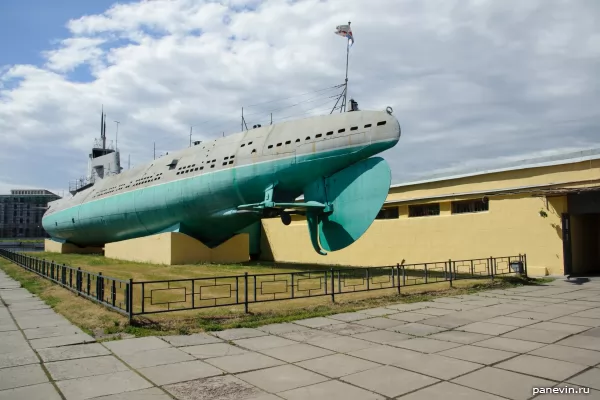
Submarine Museum D-2 Narodovolets, view from the stern. At the time of my visit (2019), the ticket cost 300 rubles (for adults).

The submarine museum D-2 Narodovolets
The memorial museum was installed near the heroes of the Great Patriotic War, scientists, designers and shipbuilders near the Sea Glory Square in 1993.
D-2 "Narodovolets" (type "D" - "Decembrist") - a pioneer of the Soviet submarine fleet. One of the first Soviet-built and designed ships, Series I, 1929.
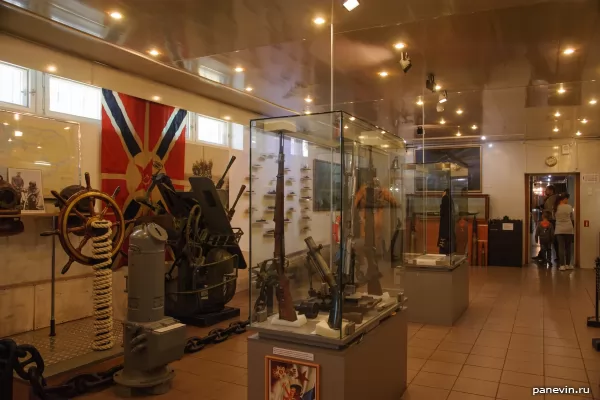
The museum exposition consists of two parts - the building adjacent to the submarine and the submarine itself.
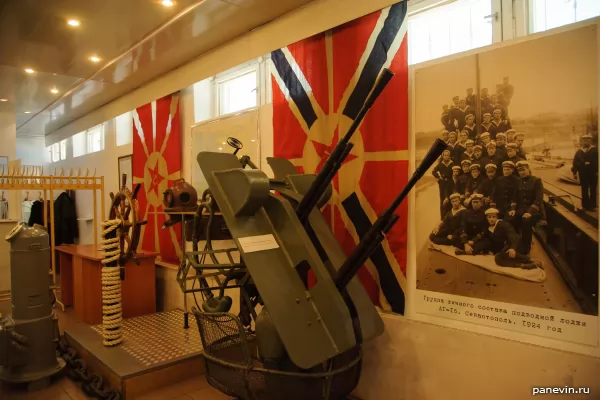
Twin 12.7 mm anti-aircraft gun. In the background is a diving helmet, in which fans can take pictures stick their heads in.
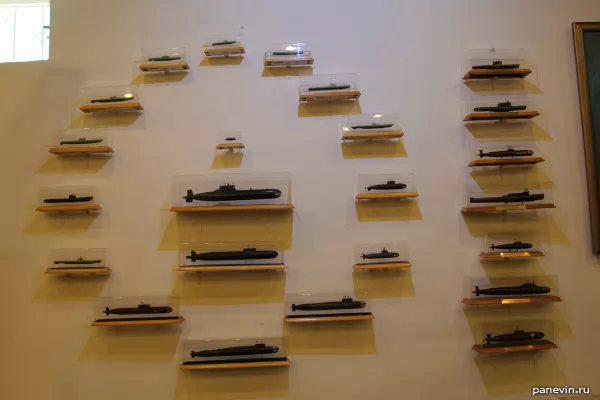
Models of submarines of different years, starting from the first "Dolphin" and ending with “Shark” (the largest boat in the world, project 941).
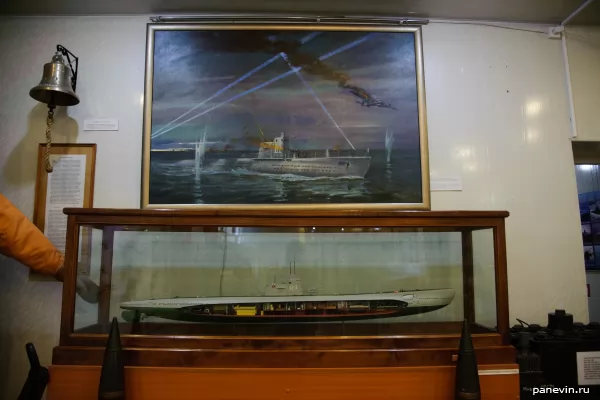
Layout of the boat D-2 “Narodovolets” by section.
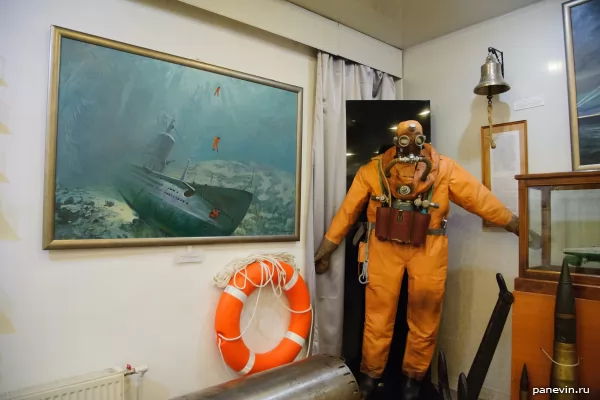
Diving suit and a picture illustrating the crew leaving the boat through bow torpedo tubes.
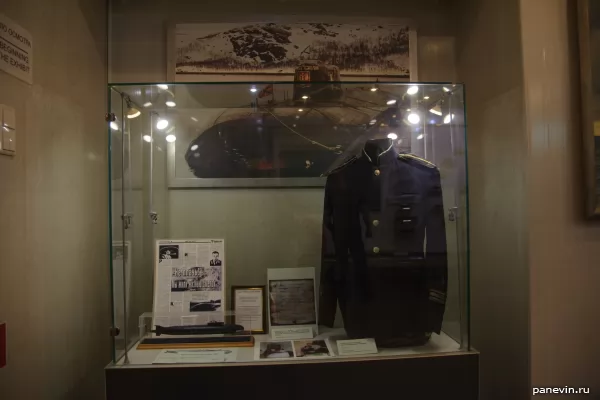
The tunic of the submarine commander and a memory stand for the Kursk nuclear submarine.
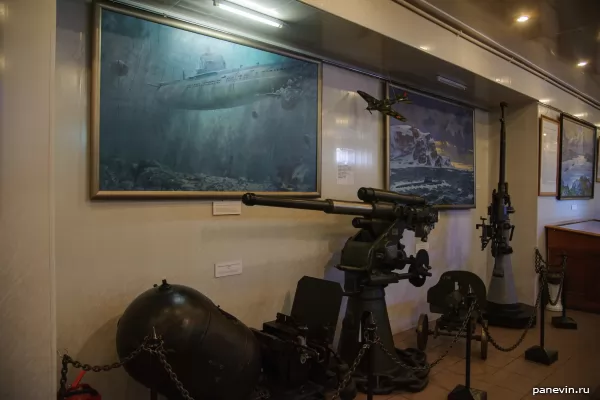
Artillery gun and anti-aircraft machine gun DShK.
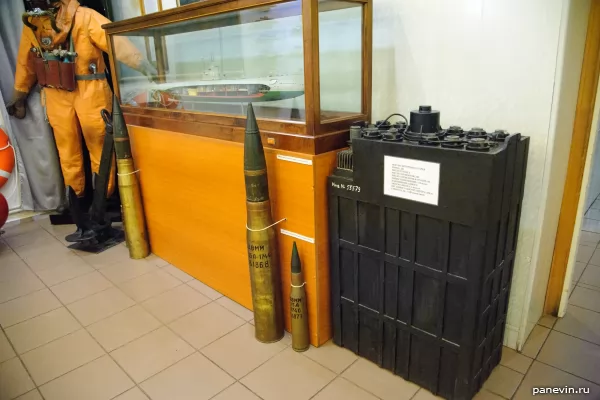
Shells and battery.
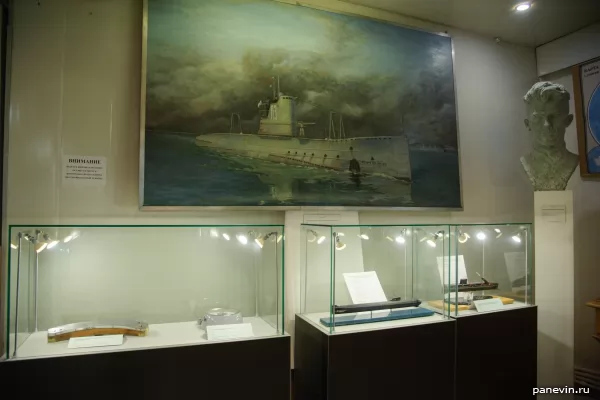
The submarine L-3 Frunzevets and the bust of its commander Petr Denisovich Grishchenko.
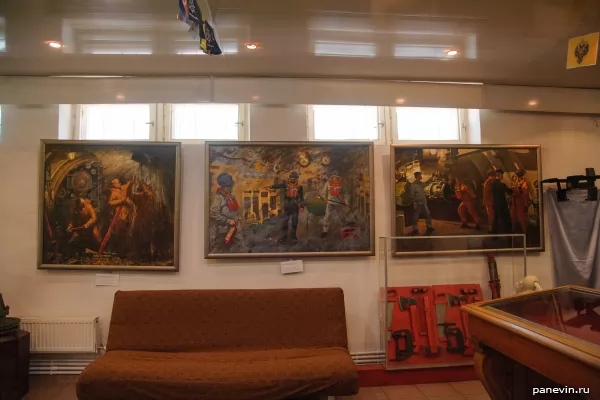
Struggle for survivability.
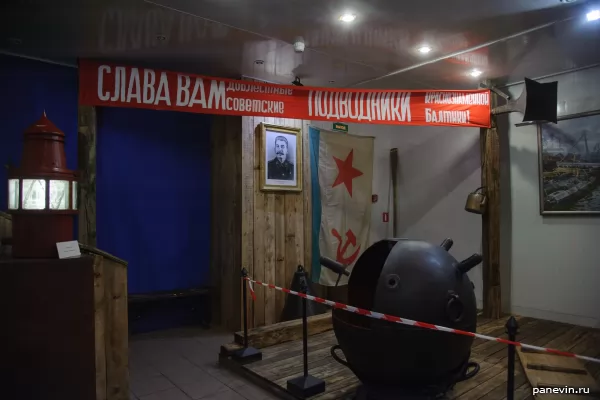
Mor sectional mine.
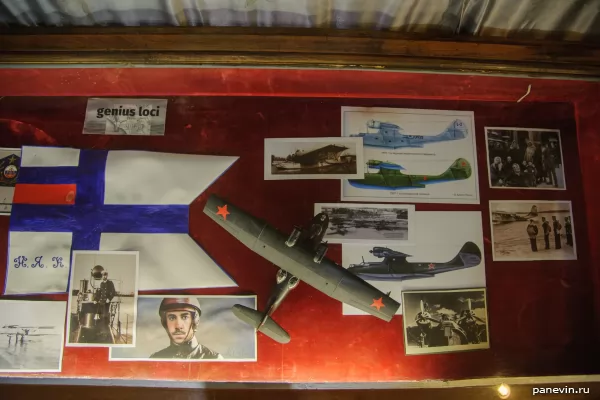
Naval Aviation Stand
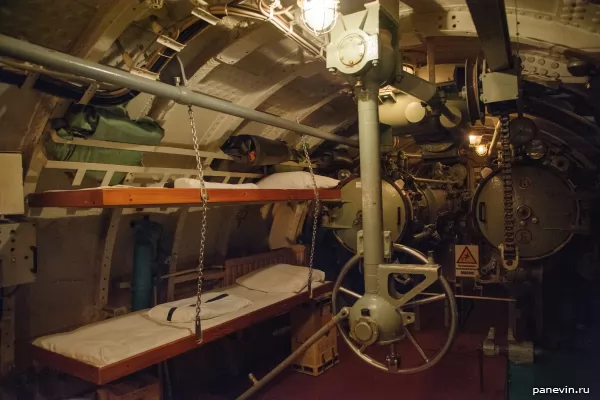
Aft torpedo tubes 7 and 8, 7th compartment (torpedo).
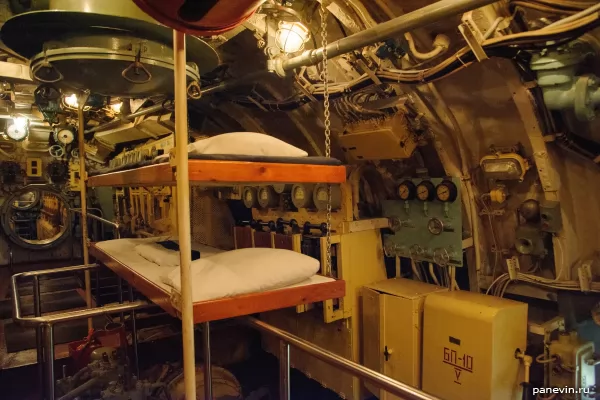
7th compartment.
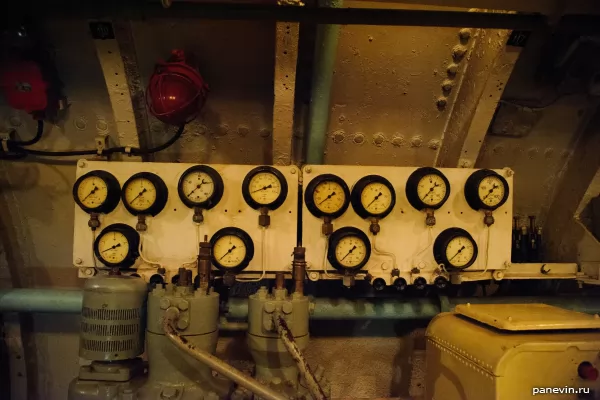
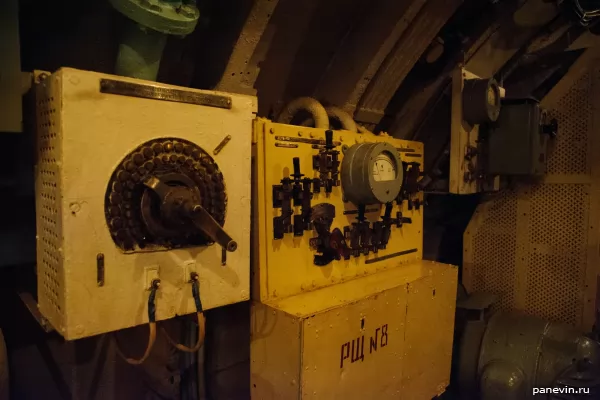
On the left is the rheostat, on the right is the switchboard: power management of heating pads, ventilation, vertical steering wheel and lighting. Handle up - power from the distribution network, down - from group # 2 of batteries.
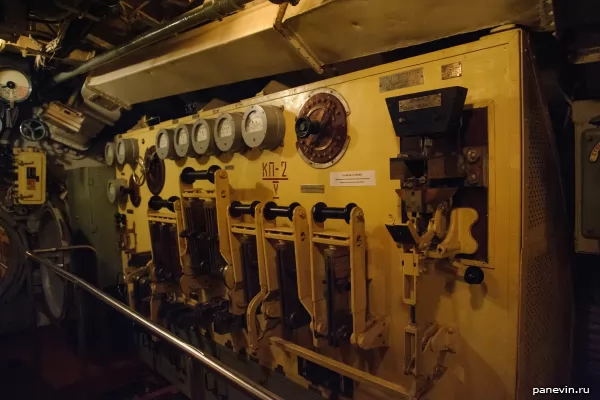
Main station for controlling the electric motor, 6 compartment (diesel).
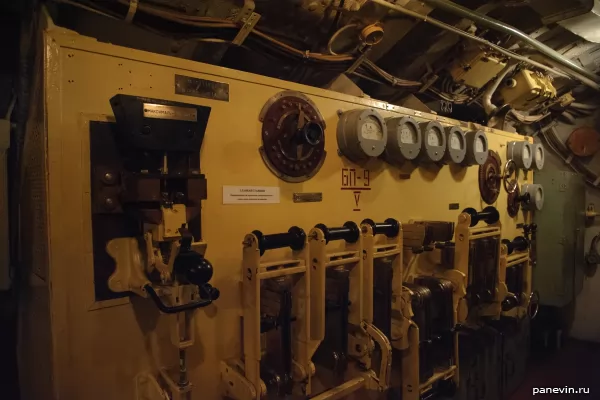
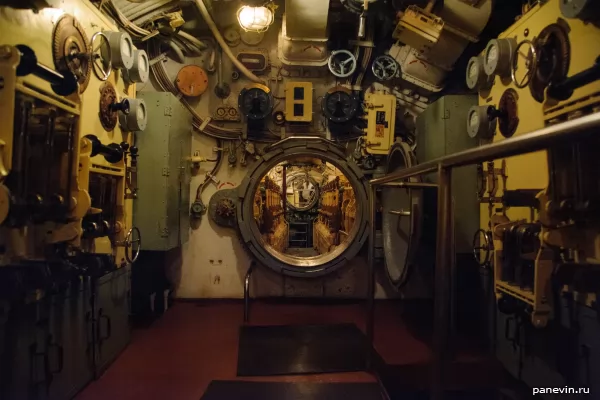
Bulkhead between compartments.
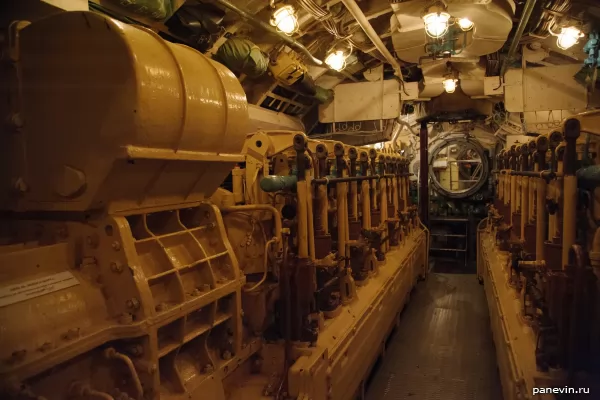
Diesel, 6th compartment.
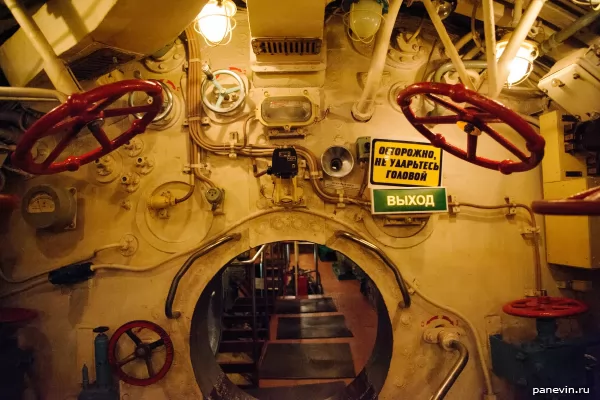
6th compartment.
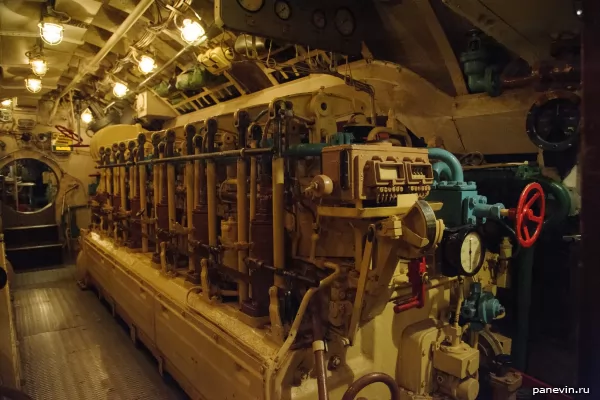
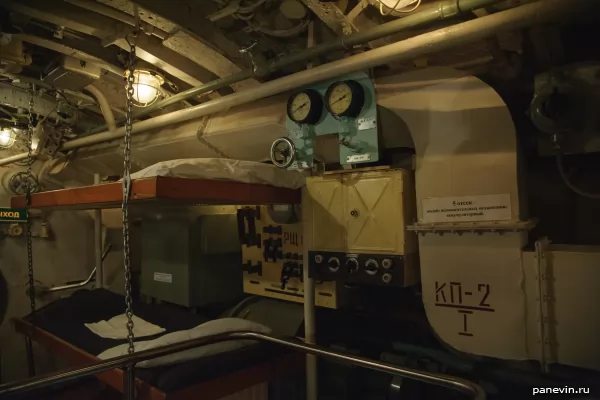
5th compartment. Residential, auxiliary machinery, battery.
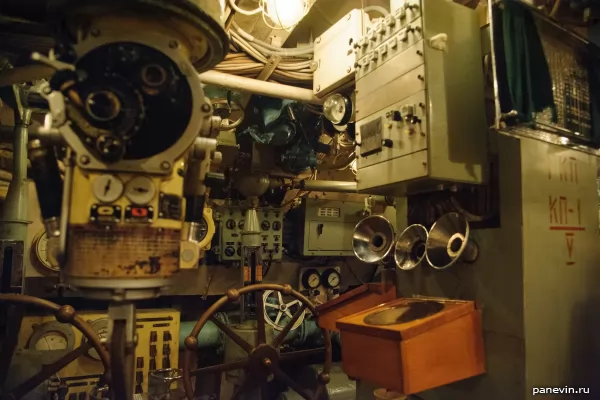
4th compartment, central post.
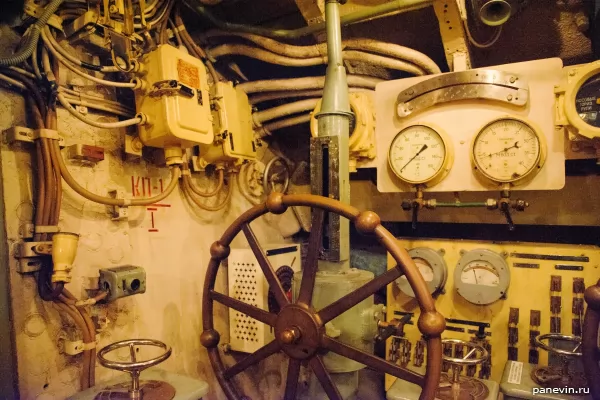
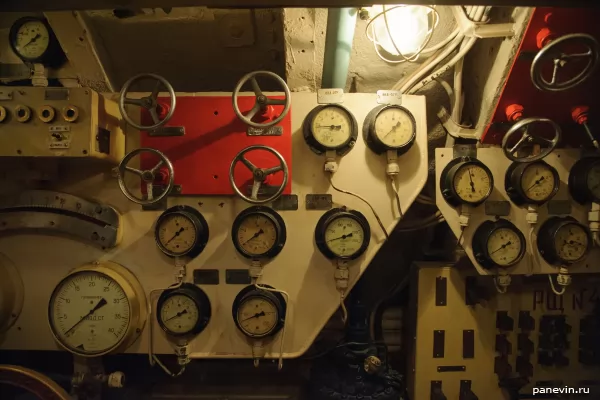
Flywheels columns for blowing groups of tanks for the main ballast.
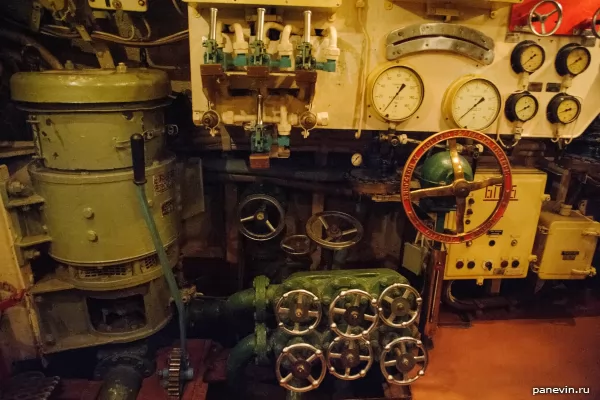
Kingston control of airborne ballast tanks, valve box trim.
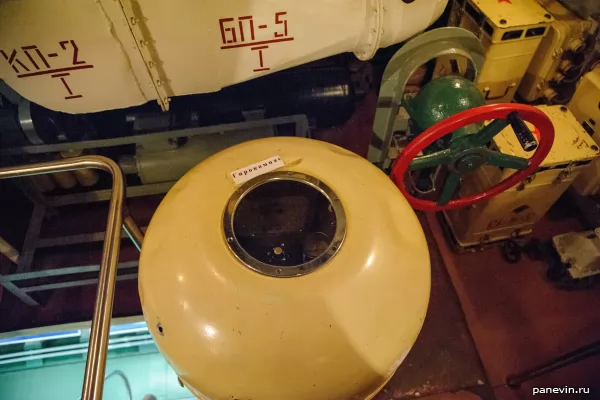
Gyrokompas
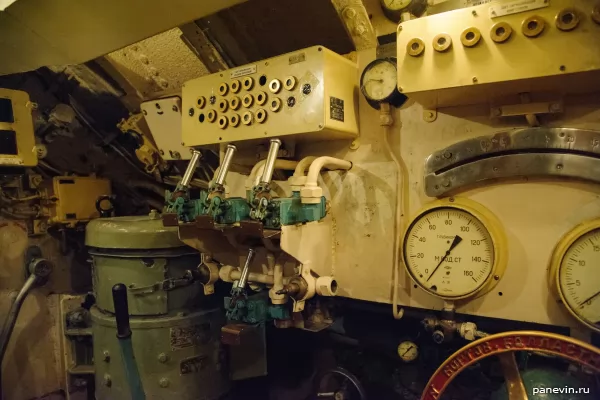
Post of control of tanks of the main ballast. Alarm panel and ventilation control knobs.
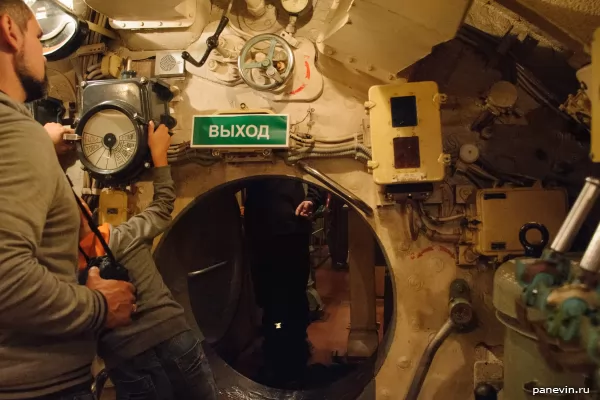
A lot of things can be twisted in a boat than children and enjoys it.
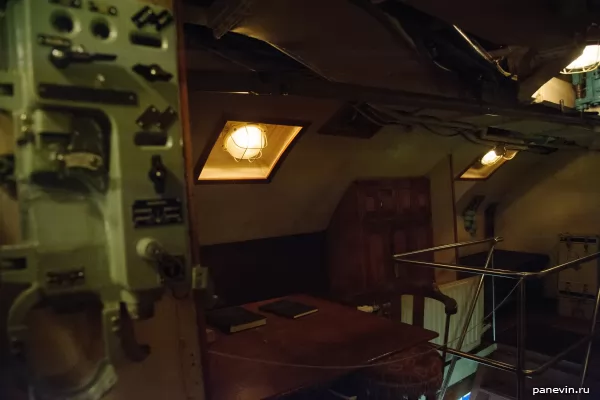
3rd compartment, battery, residential.
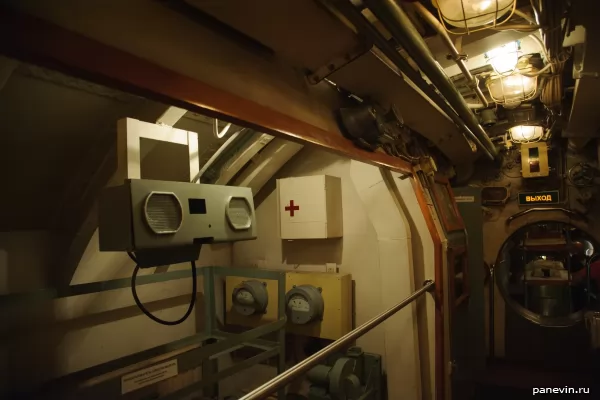
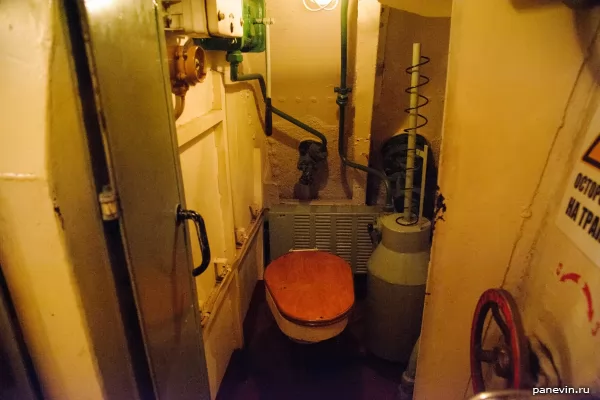
Galyun.
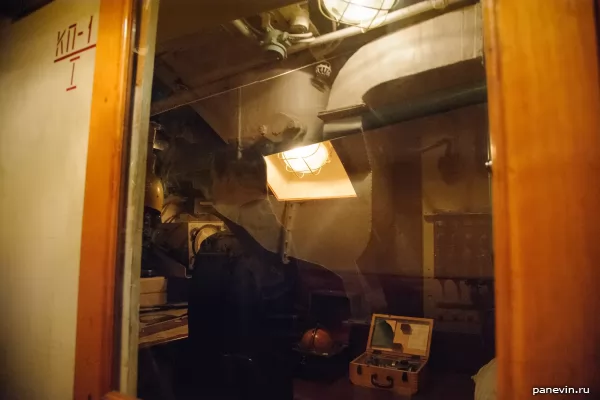
Acoustic cutting, 3rd compartment. Eyes and ears of the submarine.
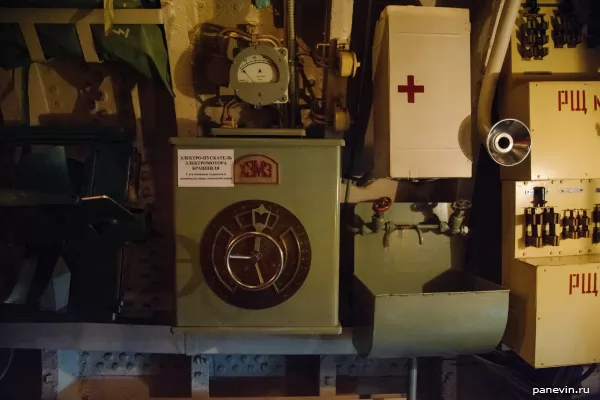
Electric windlass electric motor (anchor was lifted and lifted with its help).
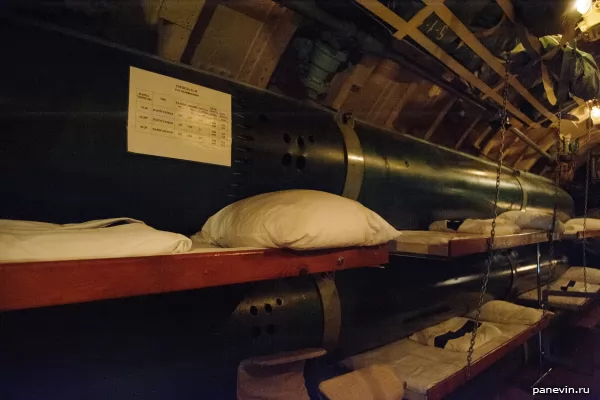
Torpedo 53-38, the main torpedoes of World War II.
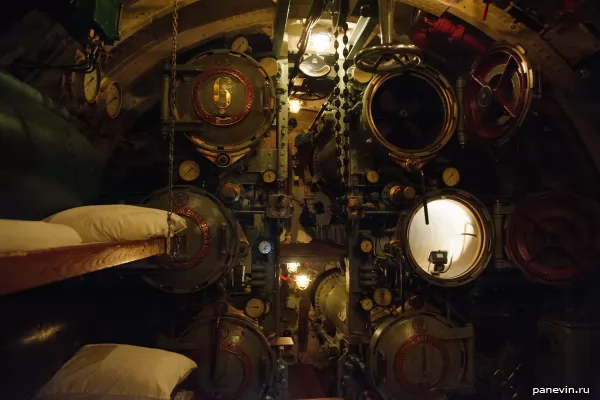
1st compartment, torpedo, torpedo tubes.
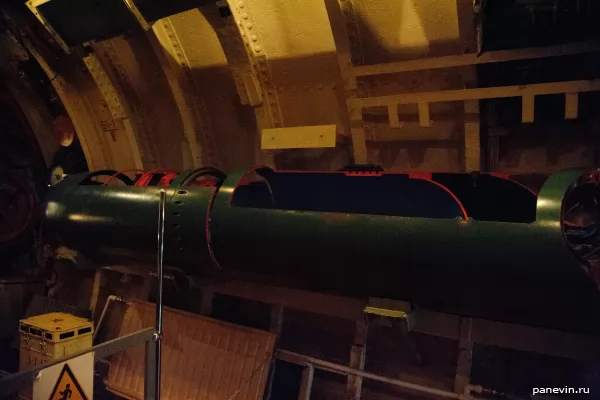
Study guide - sectional torpedo.
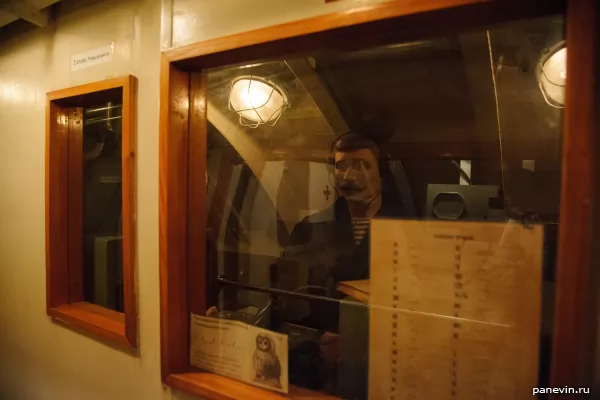
Radio cabin, 2nd compartment.
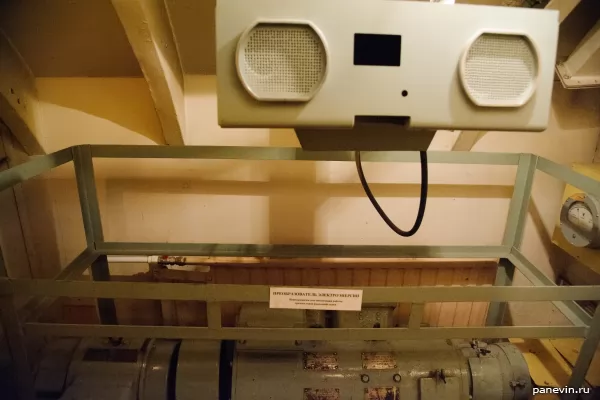
Converting Power supply for providing submarine communication devices.
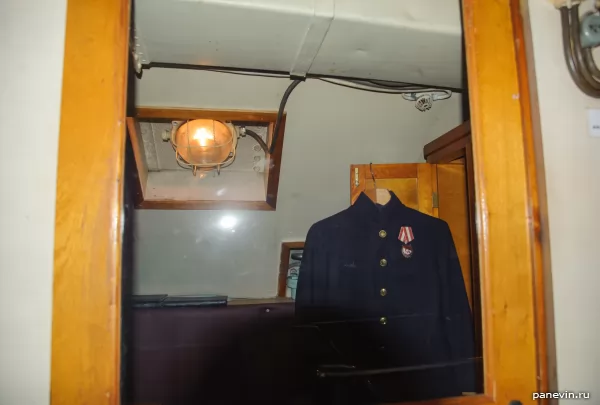
Captain’s cabin.
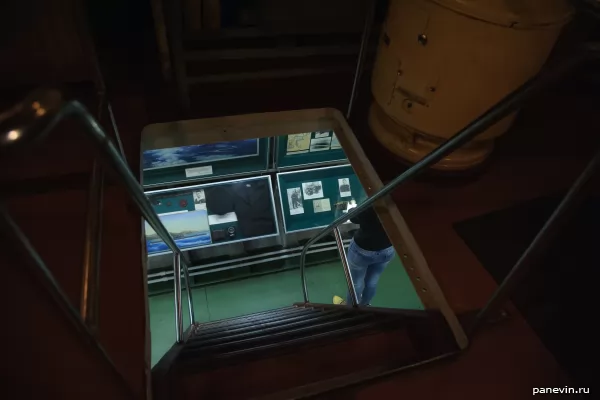
Gangway is embedded for convenience. Initially, a hermetically sealed round hatch with a diameter of 65 centimeters served as access to the battery pit.
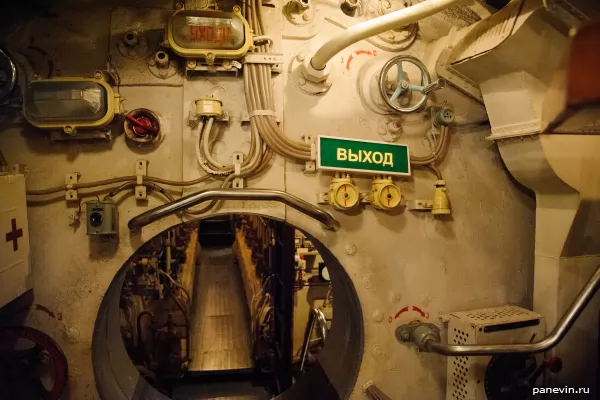
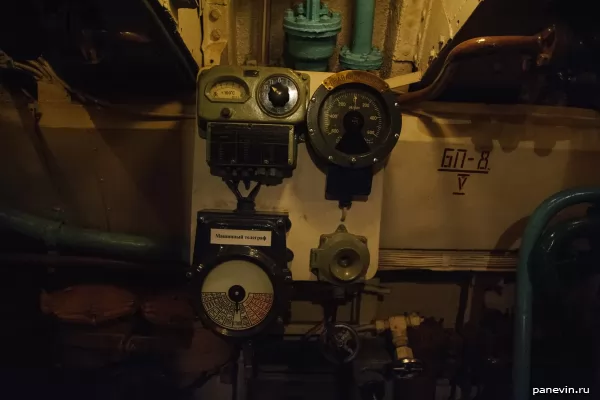
Machine Telegraph.
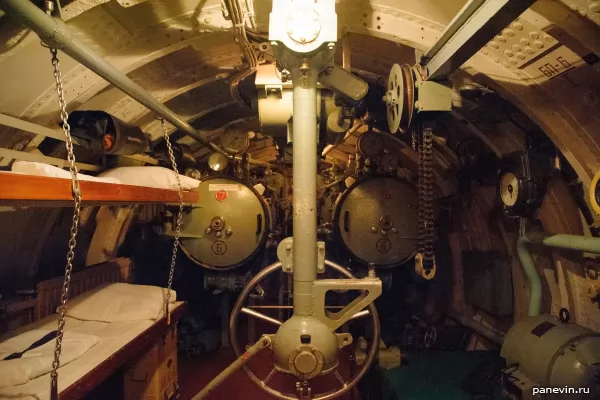
Wheel for emergency steering wheel vertical drive (aft compartment).
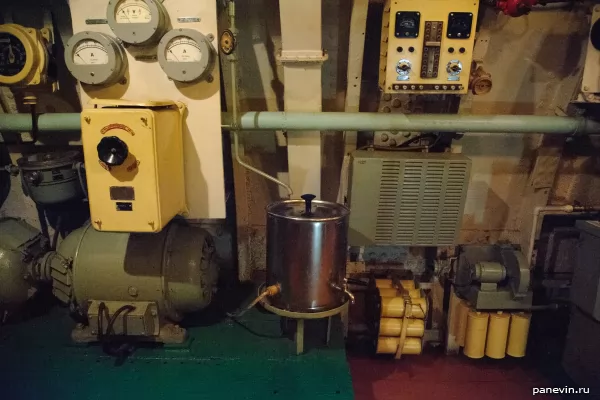
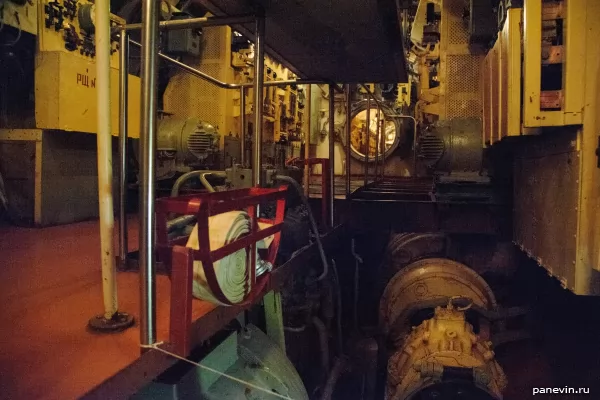
Shaft line with mounted on her electric fan GGED, uncoupling clutch and main propeller motor PG20, power 525 hp
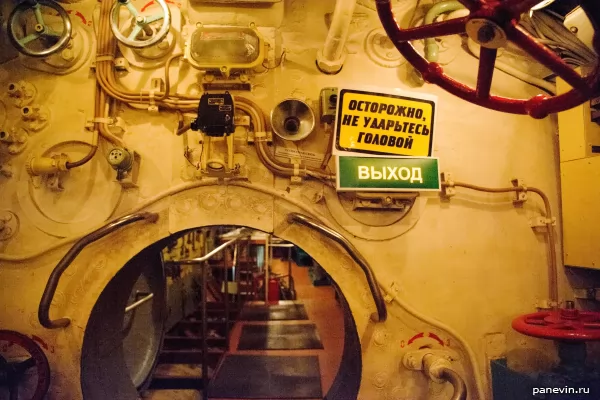
That`s all, exit, carefully, do not bang your head!
Address of the museum: St. Petersburg, Skipersky duct, 10.

Submarine Museum D-2 Narodovolets, view from the stern. At the time of my visit (2019), the ticket cost 300 rubles (for adults).

The submarine museum D-2 Narodovolets
The memorial museum was installed near the heroes of the Great Patriotic War, scientists, designers and shipbuilders near the Sea Glory Square in 1993.
D-2 "Narodovolets" (type "D" - "Decembrist") - a pioneer of the Soviet submarine fleet. One of the first Soviet-built and designed ships, Series I, 1929.
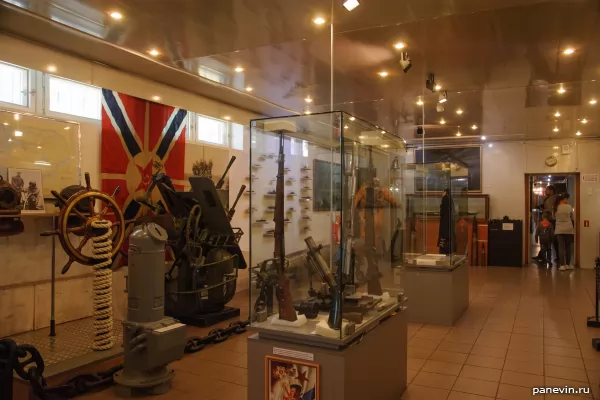
The museum exposition consists of two parts - the building adjacent to the submarine and the submarine itself.
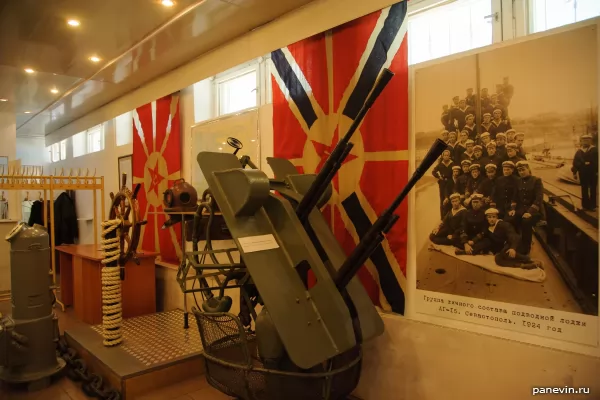
Twin 12.7 mm anti-aircraft gun. In the background is a diving helmet, in which fans can take pictures stick their heads in.
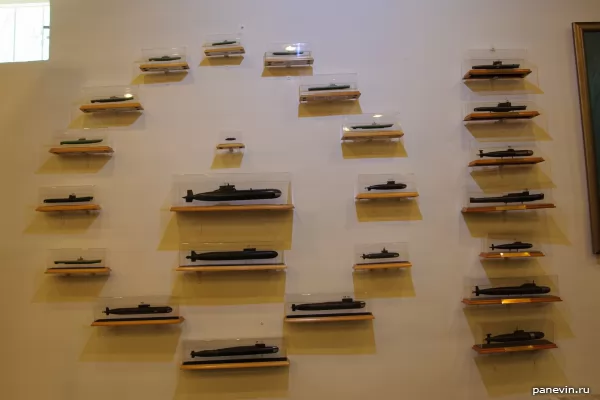
Models of submarines of different years, starting from the first "Dolphin" and ending with “Shark” (the largest boat in the world, project 941).
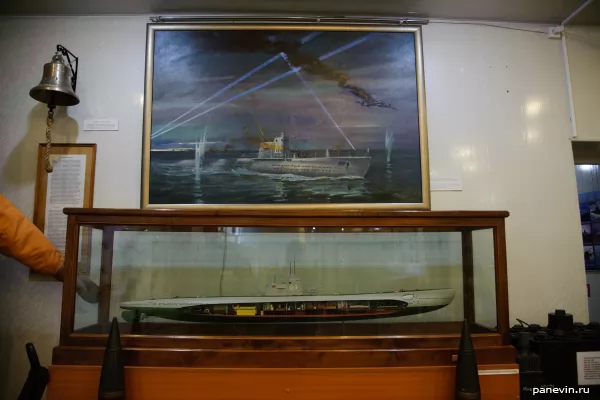
Layout of the boat D-2 “Narodovolets” by section.
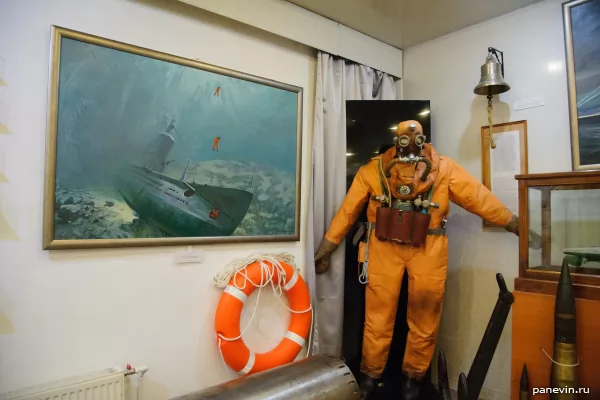
Diving suit and a picture illustrating the crew leaving the boat through bow torpedo tubes.
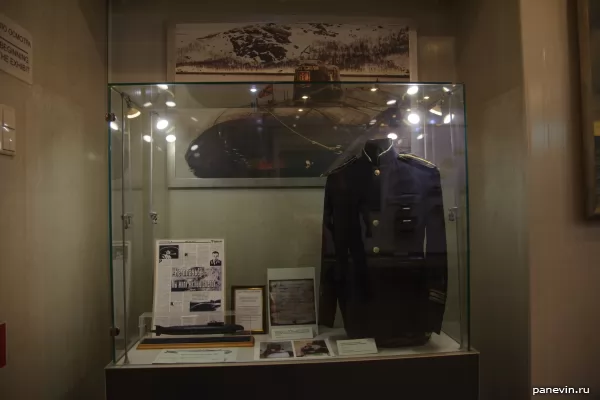
The tunic of the submarine commander and a memory stand for the Kursk nuclear submarine.
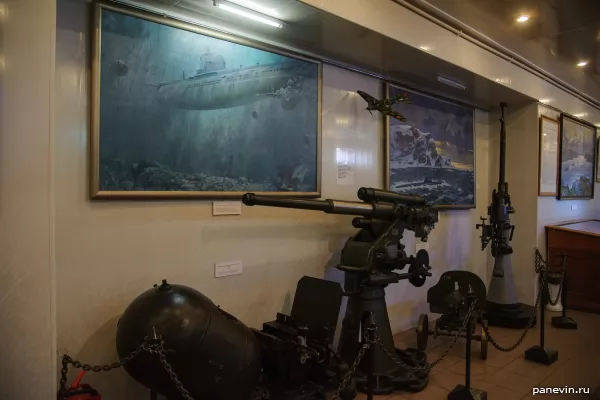
Artillery gun and anti-aircraft machine gun DShK.
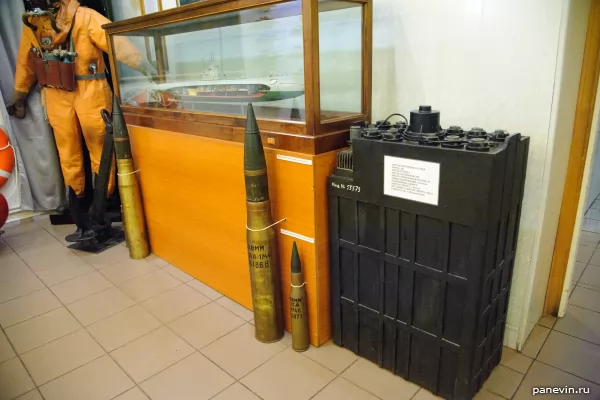
Shells and battery.
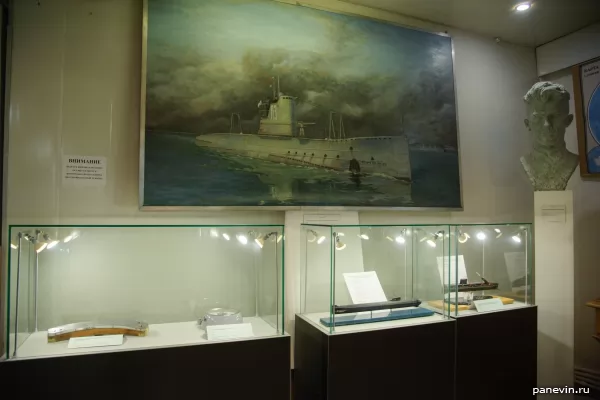
The submarine L-3 Frunzevets and the bust of its commander Petr Denisovich Grishchenko.
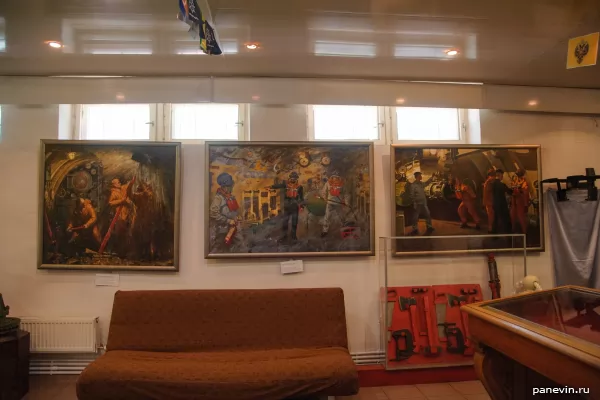
Struggle for survivability.
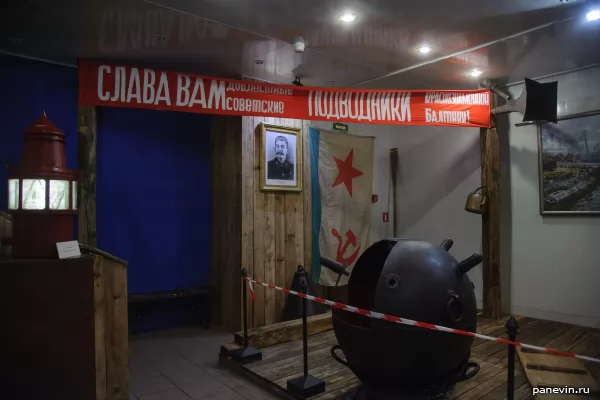
Mor sectional mine.
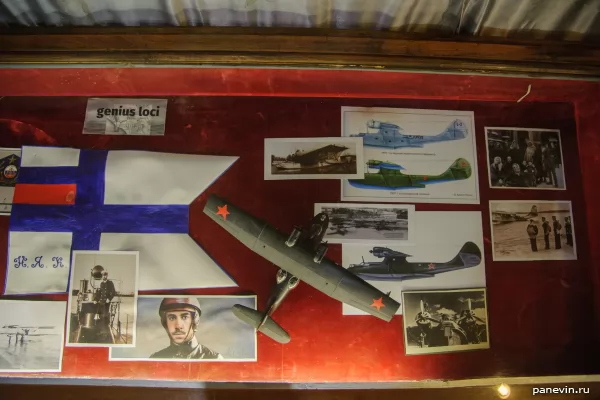
Naval Aviation Stand
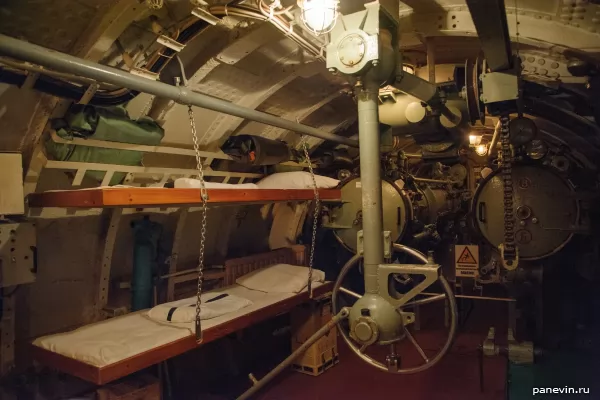
Aft torpedo tubes 7 and 8, 7th compartment (torpedo).
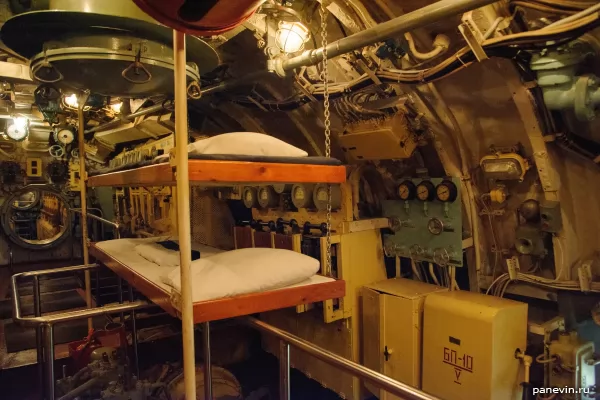
7th compartment.
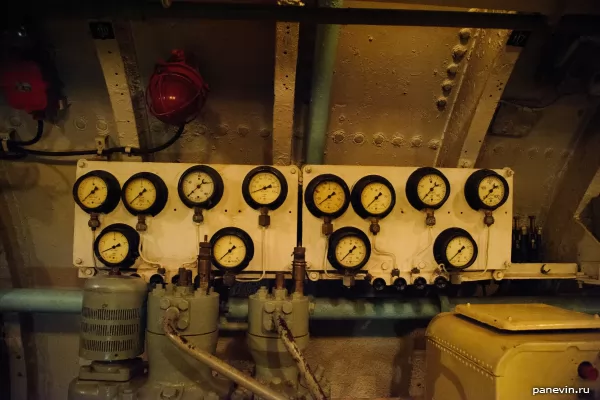
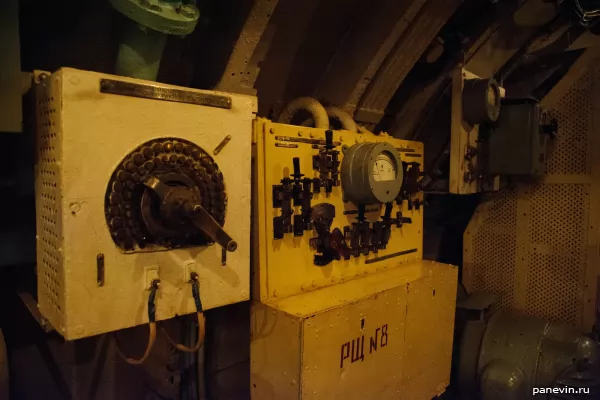
On the left is the rheostat, on the right is the switchboard: power management of heating pads, ventilation, vertical steering wheel and lighting. Handle up - power from the distribution network, down - from group # 2 of batteries.
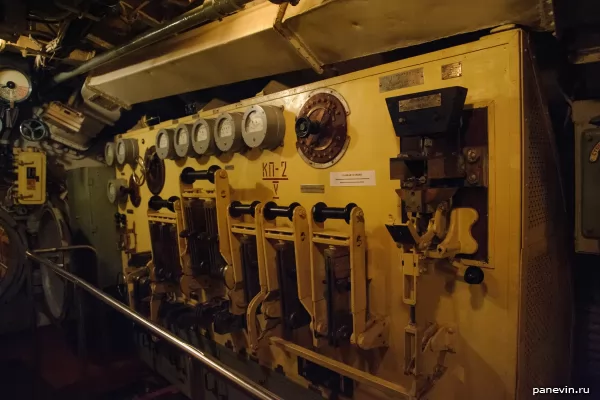
Main station for controlling the electric motor, 6 compartment (diesel).
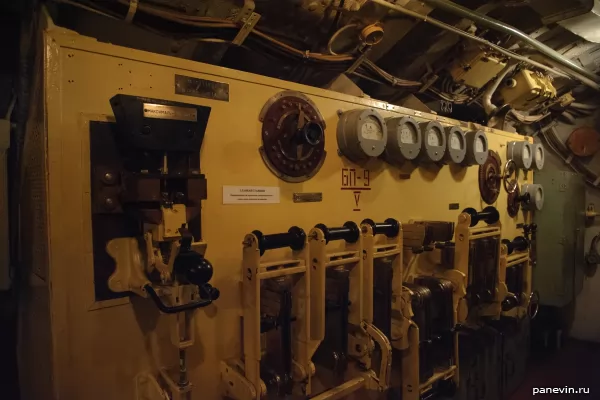
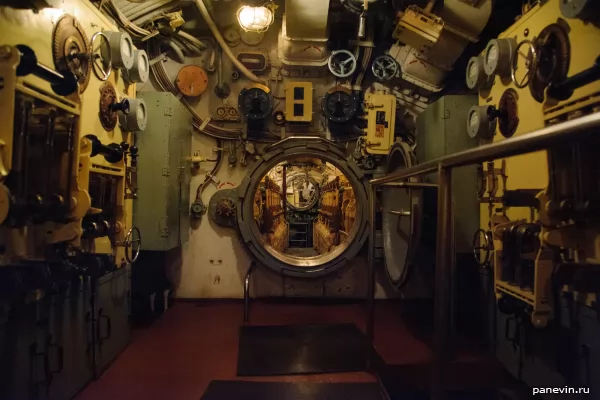
Bulkhead between compartments.
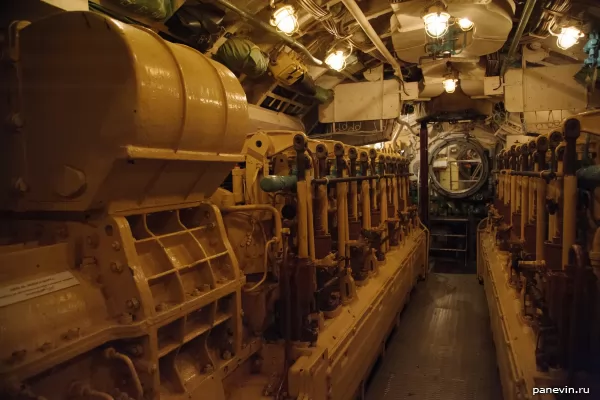
Diesel, 6th compartment.
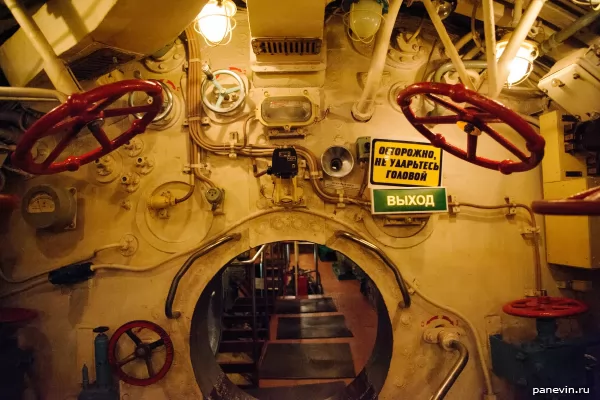
6th compartment.
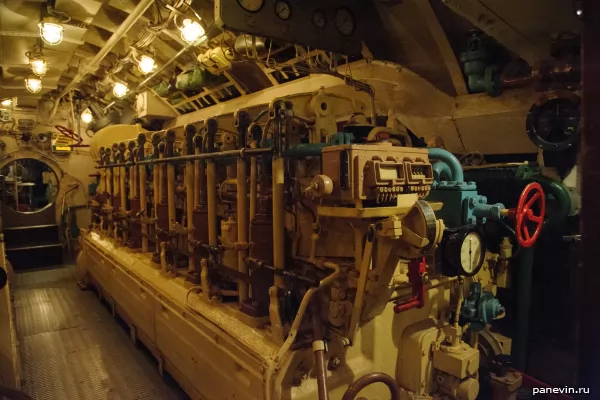
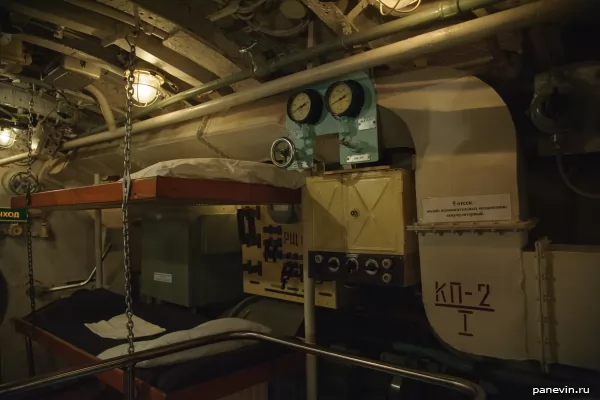
5th compartment. Residential, auxiliary machinery, battery.
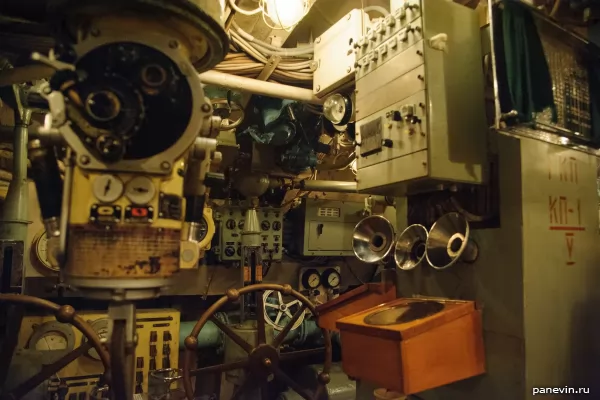
4th compartment, central post.
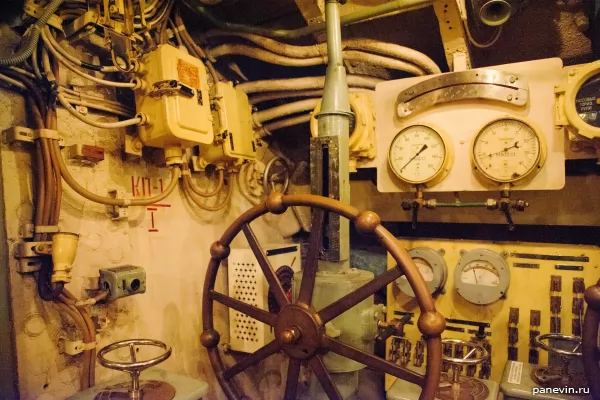
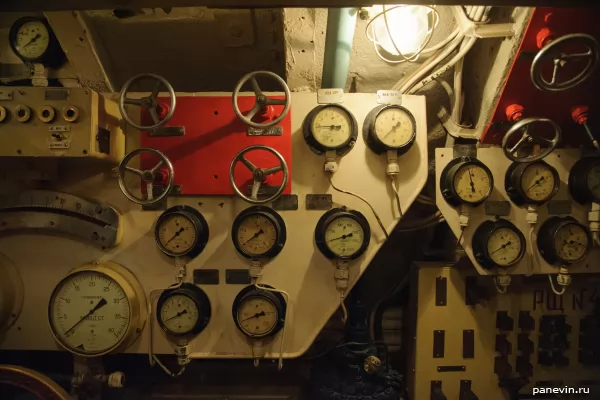
Flywheels columns for blowing groups of tanks for the main ballast.
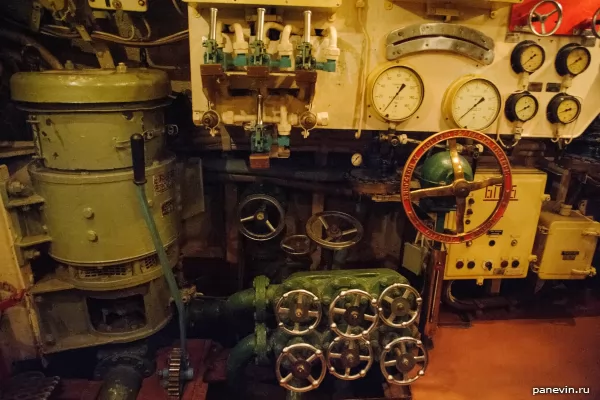
Kingston control of airborne ballast tanks, valve box trim.
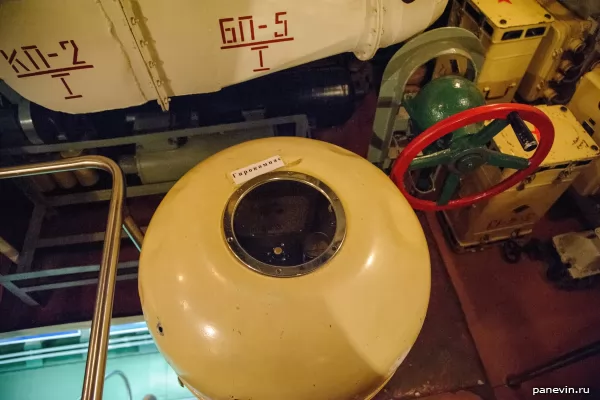
Gyrokompas
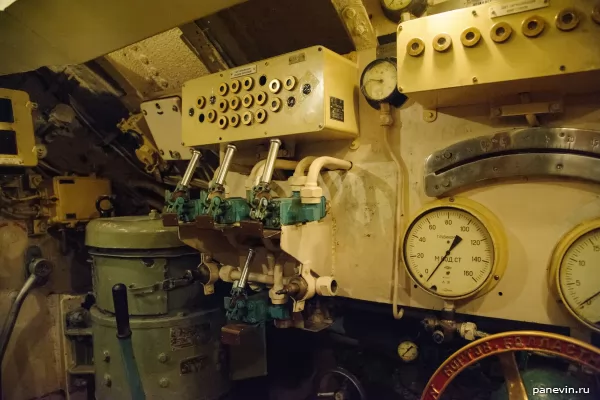
Post of control of tanks of the main ballast. Alarm panel and ventilation control knobs.
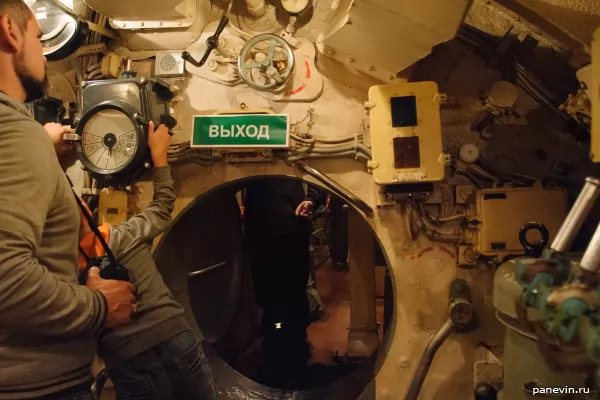
A lot of things can be twisted in a boat than children and enjoys it.
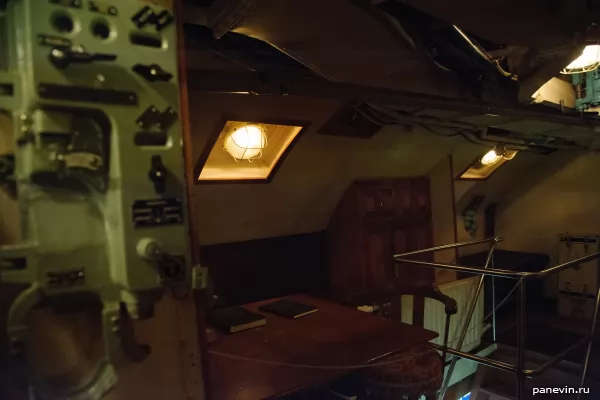
3rd compartment, battery, residential.
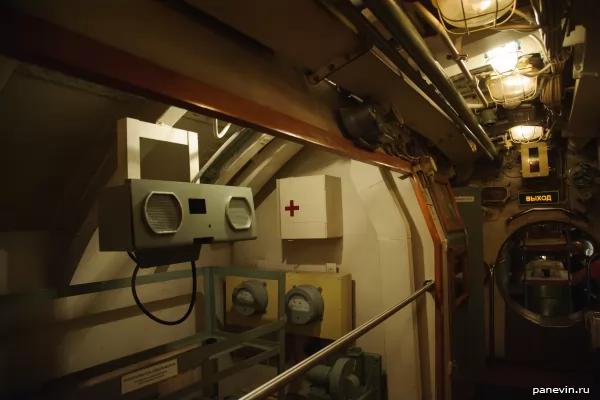
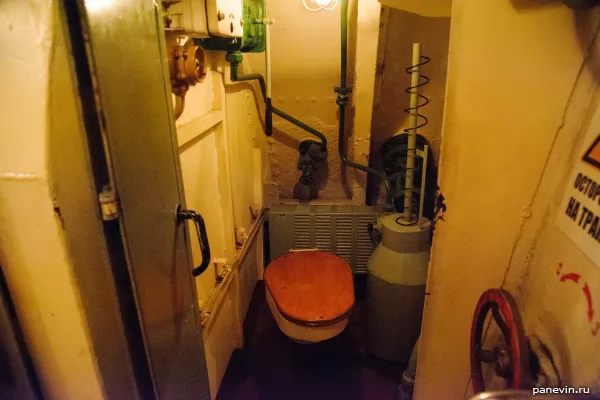
Galyun.
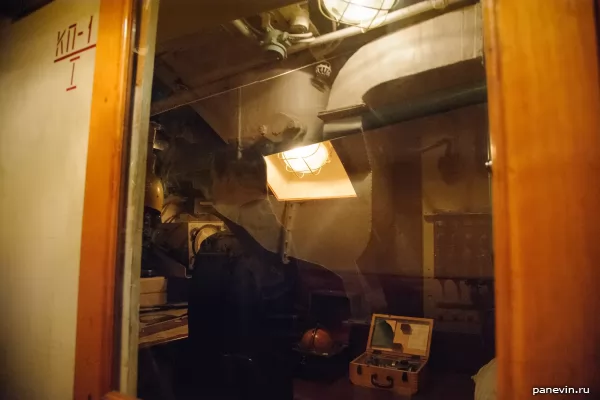
Acoustic cutting, 3rd compartment. Eyes and ears of the submarine.
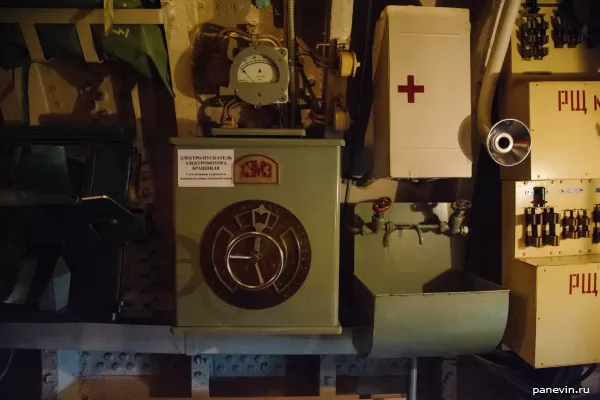
Electric windlass electric motor (anchor was lifted and lifted with its help).
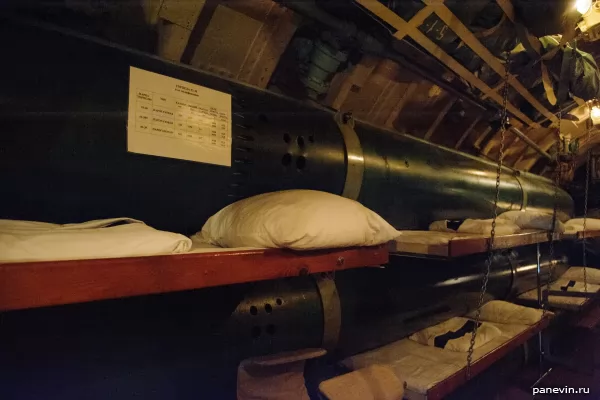
Torpedo 53-38, the main torpedoes of World War II.
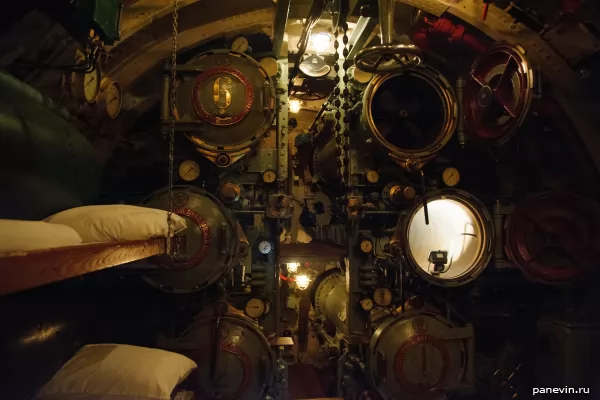
1st compartment, torpedo, torpedo tubes.
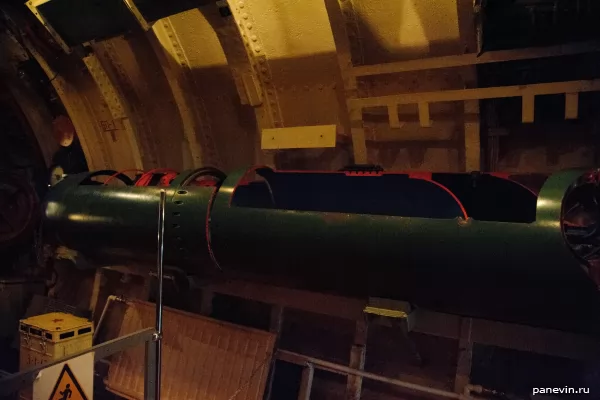
Study guide - sectional torpedo.
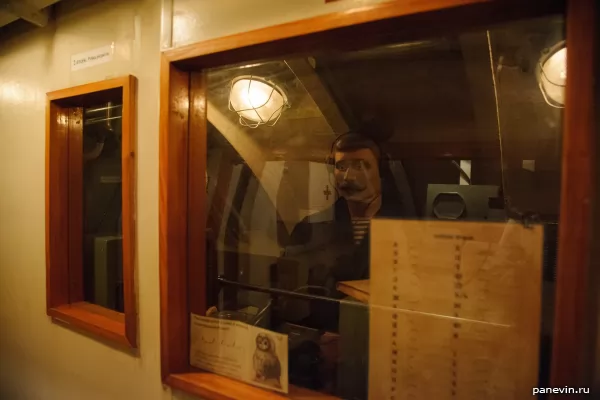
Radio cabin, 2nd compartment.
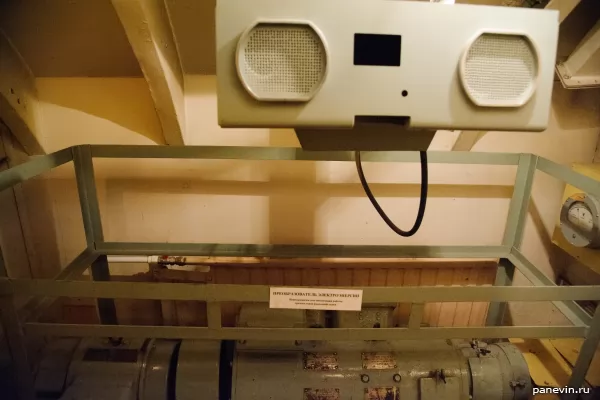
Converting Power supply for providing submarine communication devices.
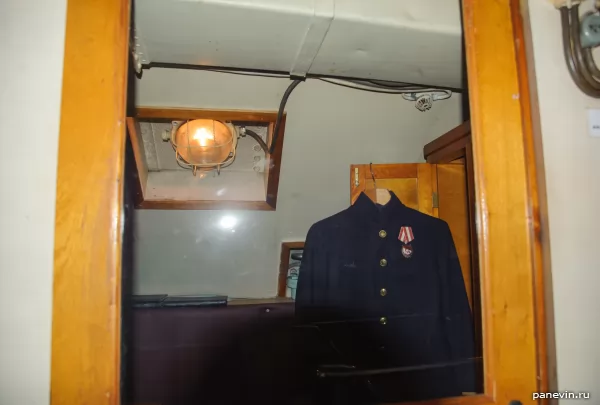
Captain’s cabin.
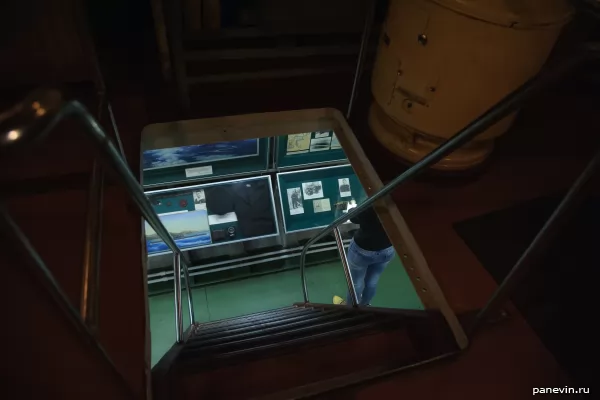
Gangway is embedded for convenience. Initially, a hermetically sealed round hatch with a diameter of 65 centimeters served as access to the battery pit.
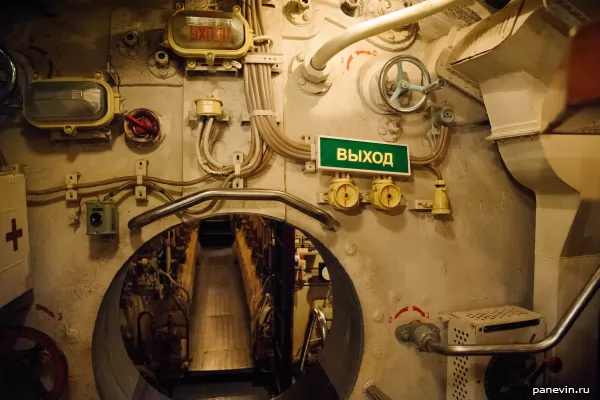
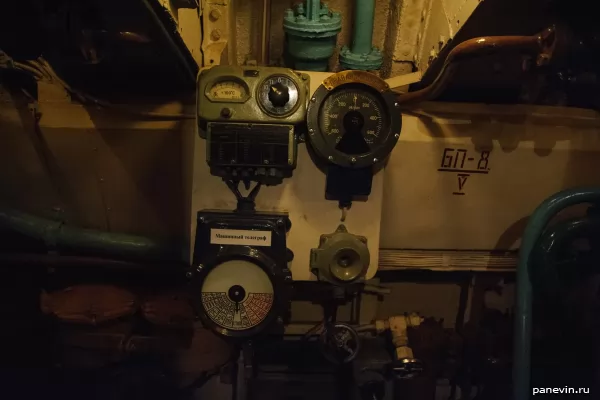
Machine Telegraph.
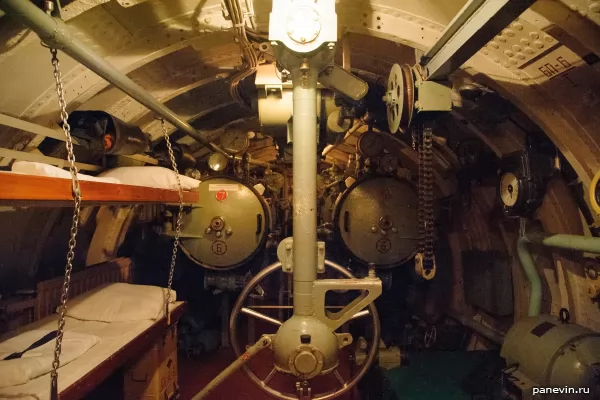
Wheel for emergency steering wheel vertical drive (aft compartment).
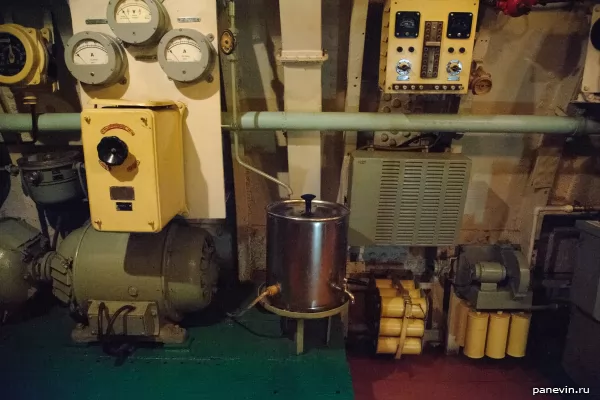
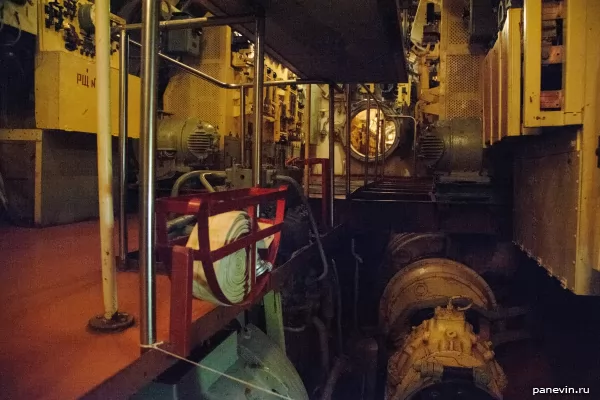
Shaft line with mounted on her electric fan GGED, uncoupling clutch and main propeller motor PG20, power 525 hp
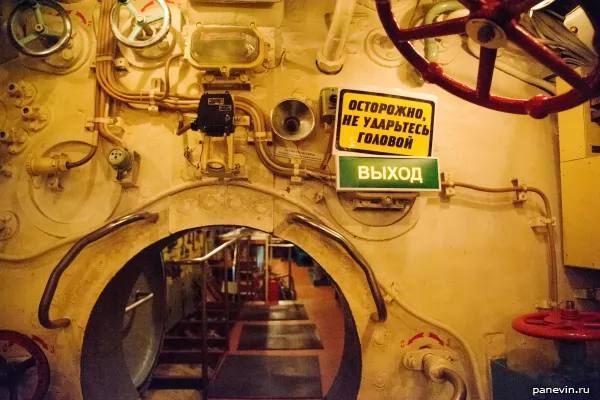
That`s all, exit, carefully, do not bang your head!
Address of the museum: St. Petersburg, Skipersky duct, 10.
Share:
Themes: fleet 11 museums 22 photos 417 St.-Petersburg 119 submarines 2 Vasilevsky island 6
Ticket sales through JetRadar.com service without commissions and markups.
← Blog
podvodnaya_lodka-muzey_d-2_narodovolets
blog



